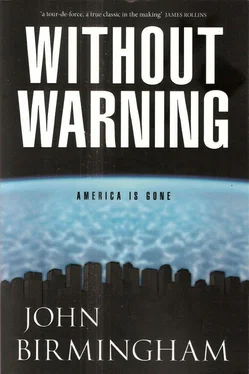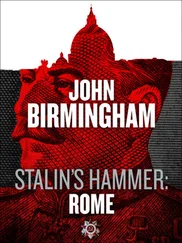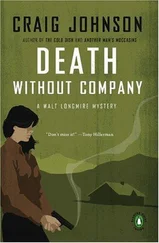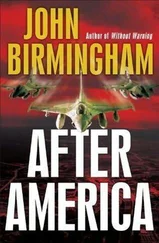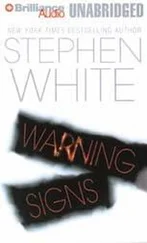John Birmingham - Without warning
Здесь есть возможность читать онлайн «John Birmingham - Without warning» весь текст электронной книги совершенно бесплатно (целиком полную версию без сокращений). В некоторых случаях можно слушать аудио, скачать через торрент в формате fb2 и присутствует краткое содержание. Жанр: Триллер, на английском языке. Описание произведения, (предисловие) а так же отзывы посетителей доступны на портале библиотеки ЛибКат.
- Название:Without warning
- Автор:
- Жанр:
- Год:неизвестен
- ISBN:нет данных
- Рейтинг книги:4 / 5. Голосов: 1
-
Избранное:Добавить в избранное
- Отзывы:
-
Ваша оценка:
- 80
- 1
- 2
- 3
- 4
- 5
Without warning: краткое содержание, описание и аннотация
Предлагаем к чтению аннотацию, описание, краткое содержание или предисловие (зависит от того, что написал сам автор книги «Without warning»). Если вы не нашли необходимую информацию о книге — напишите в комментариях, мы постараемся отыскать её.
Without warning — читать онлайн бесплатно полную книгу (весь текст) целиком
Ниже представлен текст книги, разбитый по страницам. Система сохранения места последней прочитанной страницы, позволяет с удобством читать онлайн бесплатно книгу «Without warning», без необходимости каждый раз заново искать на чём Вы остановились. Поставьте закладку, и сможете в любой момент перейти на страницу, на которой закончили чтение.
Интервал:
Закладка:
During a brief interlude, they traversed a particularly desolate and empty stretch of mountainous wasteland, and the pilot became aware of the beating of his heart. For one perverse second he couldn’t help thinking of the millions of hearts he was about to still forever. Pushing the thought away like a fearful spectre, he concentrated on the return from the radar and the threat boards. Nothing untoward. The Egyptian Air Force was steadfastly refusing to offer even the slightest provocation to its neighbour, for fear of unleashing exactly the sort of hellfire that Molenz now carried with him. They didn’t seem to know he was even in their airspace.
Whatever moral qualms Molenz had suffered before accepting this mission – and there had been many – he had nonetheless volunteered for it. They all had. He would destroy the dam and doom millions tonight, none of whom had raised a hand against him or his country. But there were millions more who would, who wanted to, and who even now were battling with the Egyptian Government’s security forces on the streets of a dozen cities, attempting to overthrow the Mubarak regime because of its supine response to what they called Zionist aggression. And they were winning. That was the hell of it. They were winning and very soon they would sit in the Presidential Palace in the north-east of Cairo and turn their blood-dimmed eyes on his home and his family – and it was wrong and it was tragic, and he might well burn for the sin he was about to commit. But Rudi Molenz was convinced that if Israel did not reach out now, at this very moment, and hammer its mortal enemies into the dust, then the Jewish state and race would surely perish.
He shook his head, a quick, constrained movement inside the helmet. They were coming up on the Gulf of Suez, one of the trip points in the fight, where they would be exposed to the radar and weapons of the western naval forces operating in the area. They had no IFF codes for this flight; and as lead planner for the squadron, he knew that an envoy had been dispatched to Hawaii to inform the Americans at the last possible minute of what was about to happen under Operation Megiddo. But they would not know just yet.
He checked the mission clock. Fifteen minutes. In fifteen minutes they would find out, via the diplomatic envoy.
But in half that time he would be over the target.
The Gulf flashed beneath them and Ephron sat quietly waiting for the warning tones and pings that would tell them they had been painted by the sophisticated arrays of the naval vessels below. The warning was not long in coming. Three harsh, discordant tones sounded and Lieutenant Ephron went to work, firing up jamming sets and countermeasures. Molenz focused his attention down to a stiletto point, determined to see them through this passing hazard.
It was over as quickly as it had begun. The waters dropped away and suddenly the giant wind farm at Zafarana appeared in the crisp aquamarine glow of his terrain-rendering APG screen. Huge, alien-looking structures blurred beneath them, recalling for Molenz an unbidden childhood memory of running alongside a picket fence through which a setting sun had cast its dying rays.
Behind him, Ephron requested permission to arm the warhead.
‘Granted,’ said Molenz. ‘Primary release code: Alpha Two Four Delta Zero Two November Three Two Five One Echo. Confirm.’
‘Confirmed.’
‘You are released to arm.’
Ephron, whose voice was shaking, busied himself on a small keyboard, tapping out a long series of commands before announcing, ‘The weapon is armed.’
Molenz dry-swallowed.
The port wing dipped thirty degrees and the plane began to track to the south as he levelled off, dropping the flight into the folds of a long valley that ran roughly parallel to the Nile. The faintest silver crescent of light bleeding over the ridgeline to the west would be Luxor, often acclaimed as the world’s greatest open-air museum. The temple at Karnak, the Valley of the Kings, the ruins of Thebes, they were all just a few minutes’ flying time away.
Molenz pressed on, allowing the Strike Eagle to begin its climb to a safe release height.
As all three birds emerged, screaming from the folds of the ancient valley, he finally saw what he was about to do. Towns and villages clung to the edge of the Nile, their weak, twinkling lights marking its sinuous path through the night like illuminated buoys. The IAF colonel pressed back into the flight seat as he poured on power for altitude.
Ephron announced from behind him that the automatic targeting system had a lock and requested that Molenz release control of the aircraft to him. The pilot agreed and felt that brief, awful moment of loss as microprocessors took over. The Eagle rolled and turned to bear down on its target, just like the bird of prey for which it was named.
There was an audible clunk and the plane jumped, suddenly free of the dreadful burden that had fallen away from beneath them. All three aircraft then pitched over and raced due east, away from the terrible thing they had just done.
The warhead slipped quietly down through the warm moist air. It did not whistle or shriek to announce its death dive. A passing sibilant hiss and the whirring of guidance fins at the tail were the only sounds it made. In the nose of the bomb, a small electronic device slavishly tracked the laser-designated aim point at the base of the dam, for as long as the warplanes were able to maintain the link. By the time they broke contact to escape the blast, the weapon had already settled into a stable descent. It struck the angled concrete wall of the Aswan High Dam at near supersonic speed with a thunderous boom that shook the entire structure.
Designed to spear deep into extremely hard, multilayered underground facilities, the penetrator – an elongated narrow-diameter spike of superhardened nickel-cobalt steel alloy – was enhanced with a void-sensing hard target Smart Fuze that measured the progress of the warhead into the body of the dam, delaying detonation until an optimal depth had been reached. Israel had long ago learned the art of reducing the size of its nuclear devices without sacrificing their destructive power. Some of the bombs falling on cities throughout the Middle East at that very moment topped out in the megaton range. The blast and heat and radiation effects they yielded were vastly greater than the primitive bombs that the US had dropped on Japan in 1945.
The device that lay, for all of a millisecond, sleeping beneath millions of tons of cement, was modest in comparison, although twice as powerful as the Nagasaki and Hiroshima bombs. It did not need to be a city-killer, however. It merely needed to bring down a wall, and did so by instantly turning a significant portion of it into white-hot plasma. The Smart Fuze, having determined that an optimum penetration had been reached, signalled the bomb to compress a sphere of subcritical explosive material around a plutonium core, setting off a fission reaction.
Surrounded as it was by the crushing mass of the Aswan High Dam, the initial burst of radiation could not escape and so began to rapidly heat the encasing medium to tens of millions of degrees, vaporising everything within the expanding sphere of gas. Growing towards its maximum size, the fireball cooled rapidly, until it no longer possessed the heat to transform solid mass into gaseous residue. Having disintegrated the wall, though, it did have more than enough thermal power to flash-boil the waters of the dam. With nowhere to easily dissipate, the blast front transferred much of its energy into a shockwave that sped outwards from ground zero, imitating the effect of an earth-shattering quake. It struck the smaller, original dam wall a little further downstream like a hammer of the gods. A few thousand people who lived in the small settlements around the dams died instantly in the explosion, leaving nobody on the ground to witness what happened as the Nile was set free.
Читать дальшеИнтервал:
Закладка:
Похожие книги на «Without warning»
Представляем Вашему вниманию похожие книги на «Without warning» списком для выбора. Мы отобрали схожую по названию и смыслу литературу в надежде предоставить читателям больше вариантов отыскать новые, интересные, ещё непрочитанные произведения.
Обсуждение, отзывы о книге «Without warning» и просто собственные мнения читателей. Оставьте ваши комментарии, напишите, что Вы думаете о произведении, его смысле или главных героях. Укажите что конкретно понравилось, а что нет, и почему Вы так считаете.
